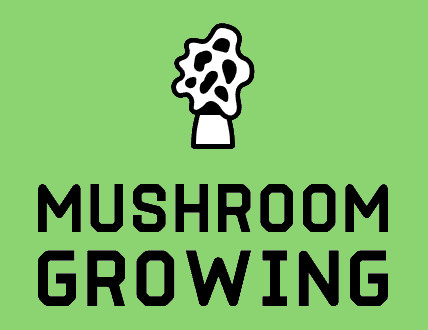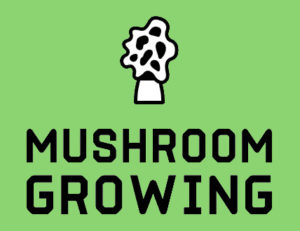Did you know that mushrooms are neither vegetables nor plants? They are actually a fungus, the fruit of which is eaten, which has seed-like spores on it. They are considered one of the best vegetarian substitutes for meat with the proteins it contains. Being low in calories, some people believe they also help to fight against cancer. All these and many more things make people look for an answer on how to preserve mushrooms at home.
Why preserve mushrooms?
Do you enjoy having a warm, creamy mushroom soup during the last remnants of winter? What if you wish to make mushroom soup but cannot find any mushrooms in the market, or it's not the time to go foraging? To enjoy mushroom dishes in all seasons, and all places, even where mushrooms don’t grow, preserving them is the best way.
Another reason for preserving mushrooms is that they can be saved from getting spoiled, and you could even use them as medicine when you become ill. This protects the delicate blend of nutrition and other health benefits from natural disasters and other catastrophes (like your fridge packing up!).
There are many ways to preserve fresh mushrooms. The right method to preserve depends on the variety of mushrooms you are trying to store. These are the most popular ways for preserving mushrooms:
- Drying
- Blanching and freezing
- Sauté in oil or butter, and then freeze
- Steaming
- Canning
- Salting
- Pickling
Before going into the steps of each method of preservation, we will first look at the steps to clean mushrooms before you preserve them. Finally, we will talk about the best way to use preserved mushrooms.
What is the best way to clean mushrooms before you preserve them?
You don’t want to have dirt floating around in your soup when you add a pack of preserved mushrooms. So, it’s better to clean them properly before butting them for storage.
You should follow these steps to clean the mushrooms properly before preservation:
Step 1: Trim the unneeded parts
First, trim the damaged or extra sections of the mushrooms and crusted dirt to make them tidy using a paring knife
Step 2: Rinse and wash them
Next, use a dry pastry brush to remove all dirt and debris from the mushrooms. If it seems time-consuming, then rinsing the mushrooms under running water is a quick and effective way to get rid of all dirt from the mushrooms in a single go.
Step 3: Dry them
The last step is to put the mushrooms on a paper towel to dry them properly. It is correct to clean and wash the mushrooms just before you use a method to preserve them.
Never soak the mushrooms in water, just rinse them or dunk them for a little while in the water to remove all dirt.
7 Best Ways to Preserve Mushrooms
Now when your mushrooms are washed and cleaned, it’s time to find the right way to preserve mushrooms for later and prolonged use. Below, we have gathered 7 ways to save mushrooms, the steps of carrying out each method, and the pros and cons of all the techniques.
1 - Drying your mushrooms
This is the ancient method of preserving mushrooms by removing all moisture from them and storing them in a dry place. In older days, mushrooms were dried under the sun, but nowadays, ovens and dehydrators are often used to carry out the same process.
How to dry mushrooms for preservation?
- First prepare and slice the mushrooms into desired shapes and sizes
- Place the mushroom slices on a rack or tray to sun dry them, keep flies and insects away, or place them at a very low temperature between 100F to 150F in the oven or put them in the dehydrator
- Dry the mushrooms till they contain no moisture, but avoid burning them
- Put the mushrooms in jars or airtight bags and store them in a cool dry place
How to use dried mushrooms?
Put the dried mushrooms in warm or hot water for a time that they become plump, it may be for 15 minutes for some varieties and several hours for other varieties
The water you soak the mushrooms in also becomes richly flavored, so use it as well in different dishes
You can freeze the water if it isn’t of any use right now to save it for later use
Advantages
- Mushrooms stay good for a long time
- The flavor remains the same or may even intensify for different species of mushrooms
- Mushrooms can be stored conveniently and in any place
- Reduces the volume of mushrooms
Disadvantages
- Mushroom texture gets changed, and they become tough
- You cannot sauté or fry dried mushrooms
- Volatile aroma and flavor of mushroom dies out
2 - Blanching and Freezing your mushrooms
This method is a great way of preserving delicate species of mushrooms such as Coprinus comatus, also known as the Shaggy Ink Cap. This involves thorough washing of the mushrooms, so trapped sand or dirt no longer remains in the mushrooms.
How to blanch and freeze mushrooms?
- Put the washed mushrooms in a cold water wash sink or basin to clean them
- Soak the mushrooms in a tub of water
- Sieve and drain the mushrooms for a while and add them to a pot of boiling water
- Keep the mushrooms in the boiling water for a couple of minutes till the water starts to re-boil
- Use a sieve or colander to remove the mushrooms from hot water
- Plunge the mushrooms again in the old water to stop cooking
- When the mushrooms become cool, drain the water and place them in a freezing container
- Cool the blanching water and add it to the mushroom containers. Make sure you leave some space on the top so that freezing doesn’t overfill the plastic container and breaks it.
How to use blanched and frozen mushrooms?
- Don’t defrost the mushrooms before using them
- Add the frozen mushrooms directly into soups and stews
Advantages
- Blanching keeps the mushrooms intact, and they don’t become mushy
- Washing removes all sand and dirt trapped in the mushrooms
- An efficient method to preserve large batches of mushrooms in a short time
- Flavor of mushrooms remains preserved
- Easy to use: you don’t need to defrost them, just add them straight from the freezer into the soup
Disadvantages
- Need space in the freezer
- You can fry, sauté, or crisp frozen mushrooms, but it doesn’t produce many high-quality products.
3 - Sauté in oil or butter, and then freeze
The mushroom varieties that have dry textures are best to be preserved by this method, such as Hypomyces lactifluorum, or Lobster Mushrooms.
How to use this method to preserve fresh mushrooms?
- Chop, slice, and prepare the mushrooms in desired shapes and sizes
- Fry the pieces in butter, olive oil, walnut oil, or any other oil till they are almost done, but not completely ready
- Next step is to cool the mushrooms in cool pie plates, glasses, baking dishes, or other trays.
- When the mushrooms become cool, place them in freezer containers and put them in the freezer
How to use this kind of preserved mushroom?
- Do not defrost these mushrooms
- Add them straight into a sauté pan with a little oil or butter
Advantages
- Convenient and easy
- Best for dishes that need sautéed mushrooms
Disadvantages
- The quality of mushrooms is not preserved for long due to air exposure inside the freezer container.
4 - Steaming mushrooms
This method of mushroom preservation is very similar to that of blanching and freezing, the difference being that steam is used instead of liquid to blanch the mushrooms.
How to steam mushrooms and preserve them?
- Put a steamer basket over boiling water, the basket should stay above the water and should not touch it
- Put the mushrooms in the steamer basket when water starts boiling
- Let the mushrooms blanch for a couple of minutes
- Cool the mushrooms in a cold water bath, drain them and pack them in freezing containers
- Or spread the blanched mushrooms on a cookie tray sprayed non-stick, let them cool in a single layer and put them in the freezer. When they completely freeze, remove them from the cookie tray and put them in freezer bags.
How to use blanched mushrooms?
- Do not thaw blanched mushrooms before using
- You can fry them or add them to soups, taking them straight out of the freezer
- You can coat the frozen mushrooms in a batter and fry them
Advantages
- Preserves the taste and texture of mushrooms
- More versatile and convenient than water blanching
Disadvantages
- More complicated and time-consuming than water blanching
- Does not remove sand, dirt, and grit as well as water blanching does. So, choose the cleanest mushroom varieties for this method.
5 - Canning mushrooms
⭐ Mushrooms do not contain enough acid, so may get contaminated by Clostridium botulinum if not canned safely. ⭐
How are mushrooms canned?
Use a reliable canning guide or follow the instructions and specifications of the manufacturer exactly.
How to use canned mushrooms?
Simply defrost the mushroom dish and heat it up to the desired temperatures and serve it.
Advantages
- Different prepared mushroom dishes can be canned, such as soups, stews, etc.
Disadvantages
- An expensive method
- A slight deviation from the exact method or technique can destroy the entire product
- Can be dangerous if not canned following the correct procedures
6 - Salting mushrooms
This is a preservation technique that involves fermenting the mushrooms but produces very salty mushrooms. If you add lesser salt, then it can spoil the mushrooms. This isn't such a common method of preserving mushrooms but can work well for some species.
How to use this method for mushroom preservation?
- Wash and dry the mushrooms
- Add a large amount of salt to the mushrooms and then let them dry completely
- Salt draws out moisture from the mushrooms, leaving behind the preserved mushrooms
How to use salted mushrooms?
- Soak the salted and dried mushrooms to make them plump
- You may need to rinse these mushrooms to remove excess salt
Advantages
- An easy method for mushroom preservation
- Preservation is stable
Disadvantages
- Highly salted mushrooms
- Repeated rinsing can lessen the flavor of mushrooms
7 - Pickling mushrooms
This preservation method involves adding brine or vinegar to the foods directly to preserve them. The bland store-bought varieties are well-preserved using pickling, such as Oyster mushrooms, Shiitakes, and firm puffballs.
How to pickle mushrooms?
First, wash the mushrooms, and then boil them in water and vinegar solution. Then use a pickling recipe to prepare the pickling mixture in a jar. Add mushrooms and the liquid into the jar to store them for a month in the refrigerator.
How to use pickled mushrooms?
Removed the pickled mushrooms from vinegar or brine and add them directly into different dishes
Advantages
- Mushrooms get an excellent flavor
- Pickled mushrooms are great for catered events and parties
- You can pickle the mushrooms at home
Disadvantages
- You have to follow the techniques and recipes strictly
- Serious food poisoning can result from an incorrect acid balance
What's your favourite way of preserving mushrooms? Did I miss any?
It is a great idea to store and preserve fresh mushrooms to enjoy mushroom soups and other mushroom dishes for 12 months of the year.
Get a good batch of mushrooms, clean and wash them carefully, and then dry them to remove excess moisture before you choose the right way to preserve them, depending on the type of mushroom you have.
With a big batch of preserved mushrooms, you can satisfy your mushroom craving on any day of the year!

